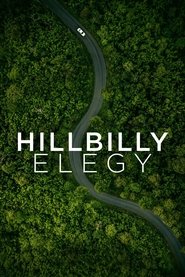Ron Howard’s adaptation showcases those same societal ills [as in J. D. Vance's original book], it takes a more personal and less sociological approach. By zeroing in so closely on Vance’s family melodrama at the expense of the broader forces at play, the film produces a generic narrative.
— Chris Barsanti (Slant)
An Oscar-friendly narrative of personal triumph in the face of great hardship, a movie designed to end with an uplifting epigraph; it is also one of the worst movies of the year.
[…]
The problem is that some audiences will look at [the culture-clash] sequences and conclude that this film is offering insights into certain spheres of society. But Hillbilly Elegy is a think-piece trap; it might be tempting to view little moments as sweeping commentary, but the film’s ambitions simply aren’t that serious.
— David Sims (The Atlantic)
What’s the most clichéd way they could dramatize his unease, you might ask, and if you answered freaking out over the fancy forks like this is a 1980s snobs-vs.-slobs comedy, congrats, you won.
[…]
And if it fails as drama, it’s even worse as commentary. Aside from the fetishizing of fried baloney sandwiches and the occasional shot of boarded-up storefronts and factories, it’s not even the meditation (or apologia) of The Current Moment we’ve been promised. Much of the narrative takes place during the Obama years, but his name is never uttered; the guns and religion that candidate Obama noted that people like these might cling to barely register either.
— Jason Bailey (The Playlist)
Although the hero J.D., as written and performed, is dull—this is not a knock against either of the actors, who are doing what the script and director required of them—the dullness is integral to the hero's relationship with most of the characters back home.
— Matt Zoller Seitz (RogerEbert.com)
Closing chyrons explain that Bev got clean. Would've been interesting to see that, but then we might've missed J.D.'s own achievements. There's an eerie myopia here, really, generations of trauma sacrificed at the altar of one man's professional success.
[…]
The memoir became a two-stage object of cultural fascination, first as a kind of Red State explainer for Blue Staters, then as a backlashed cautionary tale for anyone seeking easy explanations for Trump. Howard never works in that cultural register, anyways. Cinematically speaking, his most profound social statement is that NASA was cool when he was young.
— Darren Franich (Entertainment Weekly)
The most curious thing about Hillbilly Elegy is how little interest it shows in exploring or expounding on its source material’s subtitle [A Memoir of a Family and Culture in Crisis, ]. […] It’s not that making a movie about class-based anxiety in America circa 2020 is inherently a bad idea; one could argue that it is in fact a deeply urgent subject. But Hillbilly Elegy is so determined to have it both ways—to draw us into J.D.’s aching ambivalence about his background while structuring itself around the bravery and necessity of his escape—that it just about cancels itself out, and what’s left over is familiar from plenty of other movies indulging in ethnographic tackiness.
— Adam Nayman (The Ringer)

